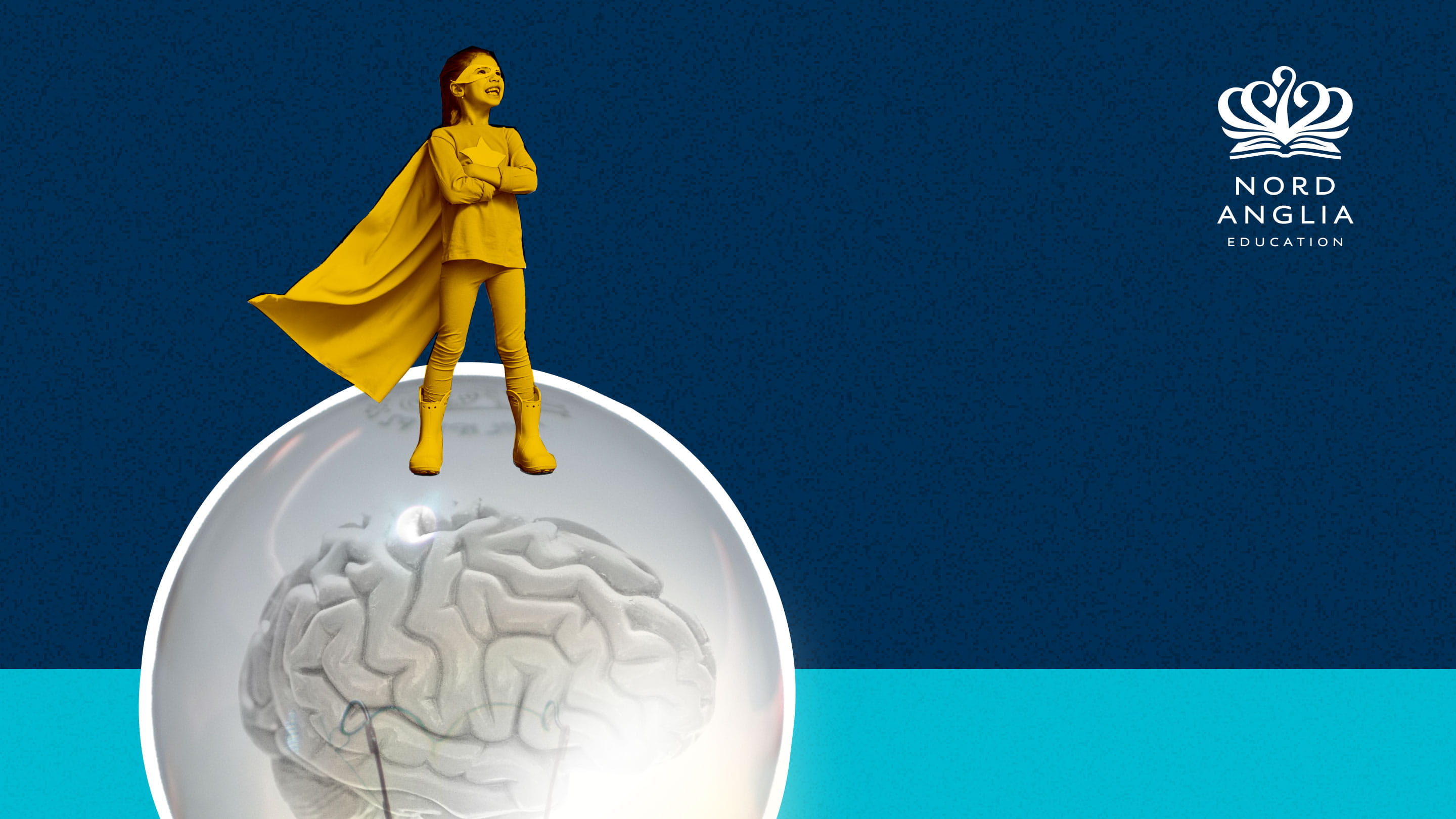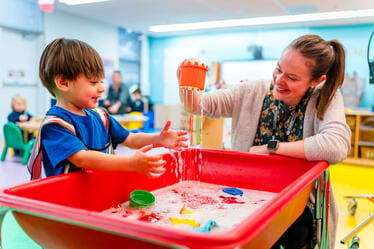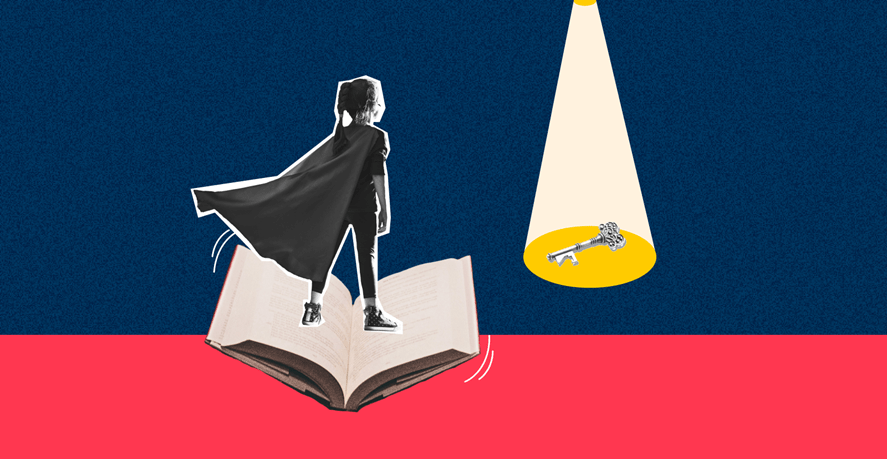We use cookies to improve your online experiences. To learn more and choose your cookies options, please refer to our cookie policy.


How many times do you get to the end of a page in a book, or a work document, and realised you cannot remember a word you’ve read?
It happens to us all.
Here’s the good news; your awareness that it’s happening is an example of metacognition—thinking about your own thinking—in action. And good metacognitive skills can help you learn and retain more.
“Metacognition is the ability to be aware of our cognitive or thought processes and to monitor, reflect on and change those processes,” says Dr Rose Luckin, professor of Learner Centred Design at the University College London (UCL) Knowledge Lab.
In the example of reading the passage in a book, you realise you’re not focusing and then you deploy strategies to become more cognitively engaged.
Becoming more metacognitively savvy would seem to have clear benefits for learning. If children improve their ability to monitor and evaluate their thinking, and develop strategies to coach their own brains, they have agency over their learning. That agency can lead to improved motivation and better outcomes.
According to the Education Endowment Foundation in England metacognitive strategies can help children make an estimated eight months’ additional progress in their learning over the course of a year. Metacognitive strategies are now part of core content in teacher training courses in England.
Research by the International Baccalaureate also backs a metacognitive focus. Its Diploma Programme, taught in more than 5,000 schools in 150 countries, includes a mandatory “theory of knowledge” component where students spend time studying the nature of knowledge and “critically reflecting on their own learning”.
Dr James Mannion, a former teacher and co-author of Fear is the Mind Killer, believes metacognition is the key to unlocking student potential.
“I think metacognition is the most important idea in education by miles, although there is some confusion about what defines it,” he says. “I think of it as the escape hatch; it is the way you escape from your current programming and habits; notice the patterns you are in and take a different course of action.”
Self-regulation, monitoring and controlling feelings and behaviour, is metacognition’s “conjoined twin”, he says. The two combine to create “self-regulated learning”.

Nord Anglia Education, the international schools group, is working with Dr Luckin to develop its approach to metacognition, used by teachers to introduce metacognitive strategies into the classroom. It has developed a metacognitive framework of six “Learner Ambitions” to help students develop the 6 Cs: to become critical, creative, committed and curious learners, working compassionately and collaboratively in the classroom and beyond.
Nord Anglia’s deep dive into metacognition has many goals: developing student agency, boosting academic performance, and developing ‘future’ skills that employers want. McKinsey & Company, for example, lists them as “foundational skills” that are vital to future-proof young people’s ability to work and thrive in a rapidly changing, digitally-driven world. The framework is being initially applied across 27 NAE schools around the world and its impact will be measured in independent research by Boston College, reporting in 2025.
The million-dollar question is how students develop these skills.
Can a student who likes to work alone, or dominates discussions, become more collaborative? Can a more logical thinker develop more creative strategies toward their learning? And can students really learn to coach their own thinking?
Researchers like Dr Luckin say they can, using supports. NAE has identified three specific strengths under each Learner Ambition. Students set personalised goals and use practical “thinking routines” to help achieve them.
For example, to teach the Learner Ambition of compassion, pupils deploy a thinking routine of “Step In, Step Out, Step Back” in their reading curriculum. When Year 6s (10 and 11-year-olds) at Nord Anglia International School Hong Kong study Onjali Q Raúf’s The Boy at the Back of the Class, they “step in” to the shoes of Ahmet, the Syrian refugee “boy” of the title, to understand how he might feel and his experiences. They “step out” to explore context to better understand Ahmet and people in his situation. Finally, they “step back” to reflect on their pre-conceptions and consider actions they might take to support refugees.
“It’s about asking the right questions; those really big questions that lead to even more questions,” says Raquel Thomson, the school’s Deputy Head of Primary. “Thinking strategies like this stay with students and serve a purpose whatever they do in their lives, whether they choose to be a scientist or a teacher or go into business.”
The technique is also being used to good effect outside the classroom to settle anxiety-inducing disputes and reconcile friends who have fallen out.
Teachers and students log progress and evidence in the NAE Learner Portfolio online platform, launched in January. Children record “moment captures” of their learning in a form of “metacognitive journalling”. This qualitative record, which allows students to look back at their journey, will follow them throughout their education.
Devised by Project Zero at Harvard’s Graduate School of Education, the routines used by the Nord Anglia schools are a set of easy to remember, transferable words, phrases and techniques that help pupils think in a more structured way. Importantly, it encourages them to articulate their thinking, and gives them more tools to use when they get stuck. This doesn’t just help learning, it supports well-being.
“Monitoring and controlling your feelings and behaviours is a vast category that covers all aspects of your life,” says Dr Mannion. “You cannot underestimate the importance of self-regulation techniques at a time when the number of kids being referred for mental health problems is rapidly increasing.”
Collaboration skills, critical for success in higher ed and the workforce, are developed through the thinking routine of “listening, speaking and encouraging others”.
“If you speak a lot, you might encourage your friend to bring their ideas forward. If you are too quiet, you think about how to contribute your ideas,” says Thomson. “Whatever their natural preference, children begin to understand that in life, there will be activities, tasks and situations where they will have to collaborate, and we are preparing them for those situations.”
Mateo Suarez, 11, a pupil at Colegio Menor Quito in Ecuador, describes metacognition as “a superpower for the brain”.
“If you are stuck in a multiplication problem in math, you don’t give up,” he says. “You think about doing something else—like using addition instead.”
Mateo Allen, also 11, says setting goals and learning the language of metacognition has made it easier to focus on classwork and “stay on track”.
“It is good to have words to describe what we are doing, so I can think ‘oh, I am being collaborative, I have that skill and there are things I can do to get better’.”
Both boys talk about “reflecting” on their work—an essential metacognitive skill.
“We were reading a book called The Tiger Rising,” says Mateo Allen. “And we were reflecting on our own lives and one kid said something that had happened in his life that had been difficult, and another person talked about a problem; we were making connections from the book to real life situations which helped us understand the text.”
Metacognition also encourages planning—“breaking things down” as the fifth grader puts it. He gives the example of writing about dogs: “There’s a lot to say but you can break the subject down into subtopics, such as the different breeds and how to take care of them and find ways to connect each section. It’s like putting together a ceramic; you keep moving it around until it looks good.”
Parents can help build these skills by reinforcing them at home. “Instead of asking your child ‘what did you do in school today?’,” says Jessica Schultz, Academic & Curriculum Director at San Roberto International School, in Monterrey, Mexico, “ask what they found easy or most enjoyable about their learning that day. Also, what they found most difficult, be it a concept or subject, and why. This way you are engaging your child in intentional reflection, a practice that can become a healthy habit. Rather than receiving the standard ‘I dunno’, you are more likely to get a connection with your kiddo and a much more meaningful response.”
At Colegio Menor Quito, students don’t just reflect on their learning, they reflect on their performance by taking charge of parent-teacher conferences.
While the idea prompted some initial pushback, in time, both teachers and parents saw the benefits. “Children were able to say ‘mum, dad—I’m very good at this and you can see here how good I am, but you need to know I’m working on this other area and these are the plans I have to improve’,” says Monica Chiriboga, the elementary school principal.
“Teachers were amazed by what we knew would happen—the power of our students to be involved in their own learning and to reflect on it.”
Some academics and teachers argue that metacognition is nice on paper, but too much emphasis on self-reflection can detract from direct instruction. Others have argued it is good in theory but its application is inconsistent. As it is understood differently, it is hard to measure precisely.
NAE schools are about a year into its metacognition project. Data on its effect on learning outcomes, academic success, and personal wellbeing will be collected and analysed with Boston College. Researchers will of course look at grades. But they will also consider how students are developing the skills and attributes needed to thrive in an AI-infused, fast-moving and uncertain future.
“We’re not just preparing young people to pass exams, we’re preparing them for life,” says Thomson, from Hong Kong. “By providing students with a framework that allows them to be successful, it is hard for them not to be.”
Read more from INSIGHTS: When children have all the information a click away, does having knowledge matter?